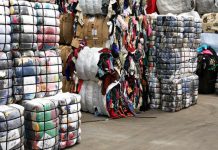EXPORTERS have bemoaned the numerous licencing and associated fees required by government departments in Zimbabwe saying they remain a barrier to the ease of doing business.
National Chamber of Commerce president Tamuka Macheka said that his organisation was deeply concerned about the existence of different and scattered offices for export documentation.
“To be able to export from Zimbabwe, there is need for a minimum 99 hours spent on documentary compliance and an additional 88 hours are spent on border administration just on compliance issues.
“In terms of export associated costs, US$170 is spent on documentary compliance while US$285 is spent on border administrative compliance.
“On the imports side, 81 hours are spent on documentary compliance while 228 hours are spent on border compliance while US$150 is spent on documentary compliance while US$562 is spent on border compliance,” he said.
Macheka added that government was taking too much time to fix the problems and warned that continuous delays will further worsen the situation.
A construction industry representative, Martin Chingaira said players in his sector were facing similar problems.
“Contractors in our sector who get enlisted to avail their services in neighbouring countries find it difficult to secure permits to take out our plant machinery and equipment within a short period of time as it is taking more than six months,” he said.
Chingaira added that in turn, such conduct exposes companies to numerous losses as they end up losing contracts and depriving the country of the much needed foreign currency.
Clive Zhowa who runs a tourist shop in Victoria Falls said that the Zimbabwe National Parks Authority requires a licence fee of US$150 to be paid when selling an Ostrich feather which costs US$1.
He also said that it was extremely difficult to sell leather handbags made from crocodile skins due to associated licences and in turn, neighbouring countries in the region were taking advantage of this to push their sales.
Players in the country’s horticulture sector revealed that they were required to be in possession of at least eight licences before they export their products while it costs them around US$600 to export just 2 kilogrammes of green peas samples to other markets.
Renowned industrialist, Sifelani Jabangwe described the multiple licences as a great barrier to the ease of doing business which is bleeding the nation’s manufacturing sector.
“So one would realise that most government departments are now crafting these licences as fundraising projects and if all these funds are remitted to treasury, I do not think that they will as costly and time consuming as they are,” he said.
Zimbabwe was ranked 128 out of 140 countries on the global competitiveness index in 2018 and also ranked 154 out of 190 countries on the ease of doing business.






